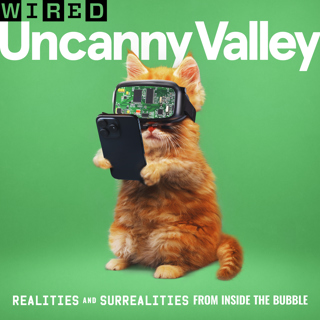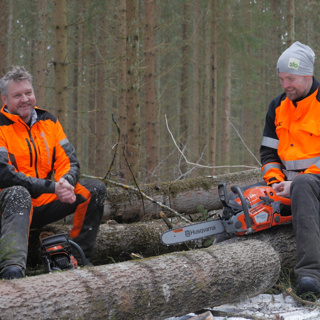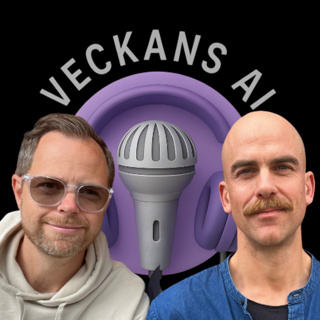
The Case of the Not-Stolen AirPods
Most of us who went to school in the United States have been threatened with detention for minor infractions like uttering a curse word or showing up to class five minutes late. But in Illinois, such behavior was landing students in more serious trouble. Since a recent state law prohibited school administrators in Illinois from fining students for infractions, those same administrators turned to the police to handle disciplinary actions. A recent investigation by ProPublica found that local police in Illinois were issuing ticketed citations to thousands of middle school and high school students each year. Kids caught fighting, vaping, skipping class, or even “causing a disturbance”—a sketchily defined catch-all—were facing tickets with fines of up to $500, putting financial strain on the their families, causing them to miss school to attend hearings, and adding to the normal stresses of school life. One case, involving a student who was accused of stealing a pair of AirPods, recently went to a jury trial as the student tried to clear her name.This week on Gadget Lab, ProPublica reporters Jodi S. Cohen and Jennifer Smith Richards join the show to talk about their in-depth reporting of the case of the missing AirPods and how police overreach has affected students in Illinois.Show Notes:Read Jodi and Jennifer’s ProPublica story about the missing AirPods and follow all of their reporting about how police cite students in Illinois.Recommendations:Jennifer recommends putting up a hammock in your backyard. Jodi recommends the Scrub Daddy sponge. Mike recommends the Longreads Top 5 newsletter. Lauren recommends donating to ProPublica.Jodi S. Cohen can be found on Twitter @jodiscohen. Jennifer Smith Richards is @jsmithrichards Lauren Goode is @LaurenGoode. Michael Calore is @snackfight. Bling the main hotline at @GadgetLab. The show is produced by Boone Ashworth (@booneashworth). Our theme music is by Solar Keys. Learn about your ad choices: dovetail.prx.org/ad-choices
24 Aug 202331min

The Cruelest Summer
Summer isn’t even over here in the Northern Hemisphere, but it’s already been a brutal few months. This year’s summer heat waves have been more frequent, more intense, and longer than any we’ve seen before. We’ve suffered through extreme weather events caused by those heat waves. We’ve seen wildfires that have been made more intense by climate change. We’ve had failures in infrastructure, industry, and the food supply. And of course, these problems are only getting worse. We’re looking at a future where extreme heat is just the new normal.This week, we bring WIRED senior science writer Matt Simon onto the show to talk about where all the heat is coming from and what it’s doing to the environment. We also talk about how quickly the problem of excessive heat is accelerating, and what—if anything—humans can do to slow it down, or at least lessen the damage it causes.Show Notes:Read Matt’s stories about heat waves, the wildfires in Lahaina, Maui, and how the heat is affecting the ocean’s food chains. You can find all of Matt’s WIRED stories in one place. Also, listen to Matt’s appearances on two previous episodes referenced in this week’s talk, when we spoke about microplastics and the Inflation Reduction Act of 2022. Recommendations:Matt recommends the 24 Hours book series that looks at different ancient societies. Lauren recommends the short film “How to Catch a TikTok Thief” from The New Yorker. Mike recommends Connections, the new daily game from The New York Times.Matt Simon can be found on X, the website formerly known as Twitter, @mrMattSimon. Lauren Goode is @LaurenGoode. Michael Calore is @snackfight. Bling the main hotline at @GadgetLab. The show is produced by Boone Ashworth (@booneashworth). Our theme music is by Solar Keys. Learn about your ad choices: dovetail.prx.org/ad-choices
17 Aug 202340min

Nobody’s Driving That Car!
Tech companies have been touting self-driving cars as the future of transportation for over a decade now. Companies like Cruise, Waymo, and Zoox all have active programs testing their autonomous vehicles in US cities like San Francisco, Phoenix, and Austin. Their cars have run endless loops around town to train their algorithms, zipping along city streets—and occasionally blocking them. While the tech has clearly gotten better and Waymo and Cruise now have permission to operate fully autonomously in California, the computer-powered taxis have also driven up some controversy with local governments, safety officials, city residents, and drivers.This week on Gadget Lab, WIRED transportation writer Aarian Marshall joins us to talk about how a vote this week in California will affect robotaxi adoption in cities across the country, and what happens when our roadways are inundated with robots.Show Notes:Read Aarian’s story about how ride-hailing service drivers are responding to self-driving taxis. Read all of WIRED’s coverage of autonomous vehicles.Recommendations:Aarian recommends calling company customer support and trying to talk to a human sometimes. Mike recommends listening to comedy albums on streaming services. Lauren recommends her other podcast Have a Nice Future, particularly the episode with the artist Grimes.Aarian Marshall can be found on Twitter @AarianMarshall. Lauren Goode is @LaurenGoode. Michael Calore is @snackfight. Bling the main hotline at @GadgetLab. The show is produced by Boone Ashworth (@booneashworth). Our theme music is by Solar Keys. Learn about your ad choices: dovetail.prx.org/ad-choices
10 Aug 202334min

Farm-to-Table Internet
Cloud computing has streamlined our hyper-mobile digital lives. We upload files, images, and globs of data to the cloud. Once all of our stuff is stored there, we can access it from anywhere and edit things collaboratively with our friends and coworkers. It’s convenient and appealing—but only if you don’t mind that all your personal data is stored on servers run by giant companies like Google and Amazon. The local-first computing movement is advocating for a different kind of communal framework, one that’s more private, more secure, and powered by peer-to-peer software that runs just on the machines where the files are being shared. No giant server farms in faraway lands, no faceless corporations using your data to generate ad revenue. Just the good old internet, by the people and for the people.This week on Gadget Lab, WIRED staff writer Greg Barber joins us to talk all about the local-first computing movement and how its adherents hope to upend our reliance on cloud services using peer-to-peer communication.Show Notes:Read Greg’s story about local-first computing.Recommendations:Greg recommends the Ragnar Kjartansson: The Visitors installation at the San Francisco Museum of Modern Art. Lauren recommends the Barbie movie if you somehow haven’t seen it already. Mike recommends the latest episode of The War on Cars podcast with Bob Sorokanich.Greg Barber can be found on Twitter @gregoryjbarber. Lauren Goode is @LaurenGoode. Michael Calore is @snackfight. Bling the main hotline at @GadgetLab. The show is produced by Boone Ashworth (@booneashworth). Our theme music is by Solar Keys. Learn about your ad choices: dovetail.prx.org/ad-choices
3 Aug 202332min

The Future of Hollywood
Back in May, the Writers Guild of America went on strike—partly over disputes about compensation, and partly over fears that studios could use generative artificial intelligence tools to replace human writers and creators. This month, when the actor’s union SAG-AFTRA announced its own strike, things really started to heat up as some of the biggest and most recognizable movie stars joined the picket lines. Production in Hollywood has now mostly ground to a halt, negotiations with studios have stalled, and this stalemate looks as though it will persist for some time.What do these strikes mean for the movies, shows, podcasts, and video games we consume? Will the celebrity podcasts and chat shows also go dark? Are our streaming options now going to be limited to reruns and reality shows? Senior writer Kate Knibbs joins us from WIRED’s Culture desk to discuss the shifts that technology, economics, and income disparity have wrought in Hollywood.Show Notes:Read our coverage of the WGA strike, the actors’ strike. Learn how AI is being used in Hollywood and in video games. We also have a report from a Hollywood-less Comic-Con. Read WIRED’s entire series on the future of entertainment.Recommendations:Kate recommends two music artists, Nation of Language and Yaya Bey. Lauren recommends the episode of WTF with Marc Maron featuring Cillian Murphy. Mike recommends the film How to Blow Up a Pipeline.Kate Knibbs can be found on Twitter @Knibbs. Lauren Goode is @LaurenGoode. Michael Calore is @snackfight. Bling the main hotline at @GadgetLab. The show is produced by Boone Ashworth (@booneashworth). Our theme music is by Solar Keys. Learn about your ad choices: dovetail.prx.org/ad-choices
27 Juli 202336min

Elon Musk’s Grand xAI Plans
Elon Musk is back in the news again. (Really, does he ever leave the news?) Last week, Musk announced a new artificial intelligence venture called xAI. The timing of the launch is odd considering Musk still runs Tesla, SpaceX, Neuralink, Boring Company, and Twitter. Twitter in particular is causing him headaches, with both its sagging business and increased competition from rivals like Meta’s Threads. All of these developments are happening in the shadow of what feels like a lazy subplot on a bad sitcom—a proposed mixed martial arts cage match between Musk and his rival, Meta CEO Mark Zuckerberg.This week, we talk with WIRED editor at large Steven Levy about the launch of xAI and its stated goal of “understanding the true nature of the universe.” We also discuss the places generative artificial intelligence has yet to venture, and the ways in which xAI could make an impact in the field of deep learning. And of course, we talk about that cage match. Yech.Show Notes:Read Steven’s Plaintext newsletter, in which he urges Mark Zuckerberg not to take the bait. Will Knight outlines xAI’s biggest challenges. Amanda Hoover writes about Threads’ threat to Twitter’s domain. Paresh Dave gives an update on AI regulation in Europe and the US. Read all of our generative AI coverage.Recommendations:Steven recommends Oppenheimer. So does Lauren. (We discuss it without spoiling it.) Mike recommends pretzel buns, because it’s not summer without them.Steven Levy can be found on Twitter @StevenLevy. Lauren Goode is @LaurenGoode. Michael Calore is @snackfight. Bling the main hotline at @GadgetLab. The show is produced by Boone Ashworth (@booneashworth). Our theme music is by Solar Keys. Learn about your ad choices: dovetail.prx.org/ad-choices
20 Juli 202335min

Stop Trying to Make New Twitter Happen
Hey look, there's a new Twitter alternative. The text-based Instagram offshoot Threads launched a week ago, and in the days since, the platform racked up over a hundred million users. It's a huge showing for parent company Meta that has Mark Zuckerberg and other execs celebrating. Meanwhile, current Twitter owner Elon Musk is fuming as Threads threatens to unravel his platform’s microblogging dominance. But despite its initial success, it's not yet clear whether Threads will emerge as the top social space. These early days of Threads may feel slightly less toxic than Twitter, but it's already being overtaken by cringey influencers and pseudo-sassy brand accounts. It's also just one more thing to sign up for, and could stretch just how much tolerance people have for all these new microblogging platforms.This week on Gadget Lab, WIRED senior Kate Knibbs joins us to unspool the question of whether Meta's new social service is too much, too little, or just right.Show Notes:Read Kate’s story about how it’s time to stop making Twitter competitors. Read all about how Threads may be the thing that kills Twitter, and how to run Threads on your desktop. Or, you know, don’t sign up for Threads at all until it becomes clear how much of your data it is harvesting.Recommendations:Kate recommends the book Natural Causes by Dan Hurley. Mike recommends Life Examined from KCRW. Lauren recommends season two of The Bear on Hulu.Kate Knibbs can be found on Twitter @Knibbs. Lauren Goode is @LaurenGoode. Michael Calore is @snackfight. Bling the main hotline at @GadgetLab. The show is produced by Boone Ashworth (@booneashworth). Our theme music is by Solar Keys. Learn about your ad choices: dovetail.prx.org/ad-choices
13 Juli 202338min

Have a Nice Future: Don't Worry, It Gets Worse
We're off this week, so instead of our usual show, we're sharing an episode of WIRED's other podcast, Have a Nice Future. It's hosted by Gadget Lab cohost Lauren Goode and WIRED editor in chief Gideon Litchfield. The show features interviews with guests who have big, audacious ideas about the future. Lauren and Gideon dig into whether this is a future we want to live in, and what we can do about it now.On this episode, Gideon and Lauren are joined by someone whose full-time job was to predict the future. Noah Raford spent nearly 15 years working as the UAE’s chief futurist, where he advised the government on how to prepare for all sorts of futuristic challenges, from pandemics to global warming. His advice? Get comfortable with discomfort.This episode originally aired April 26, 2023. Listen to every episode of Have a Nice Future wherever you get your podcasts. Learn about your ad choices: dovetail.prx.org/ad-choices
6 Juli 202333min





















